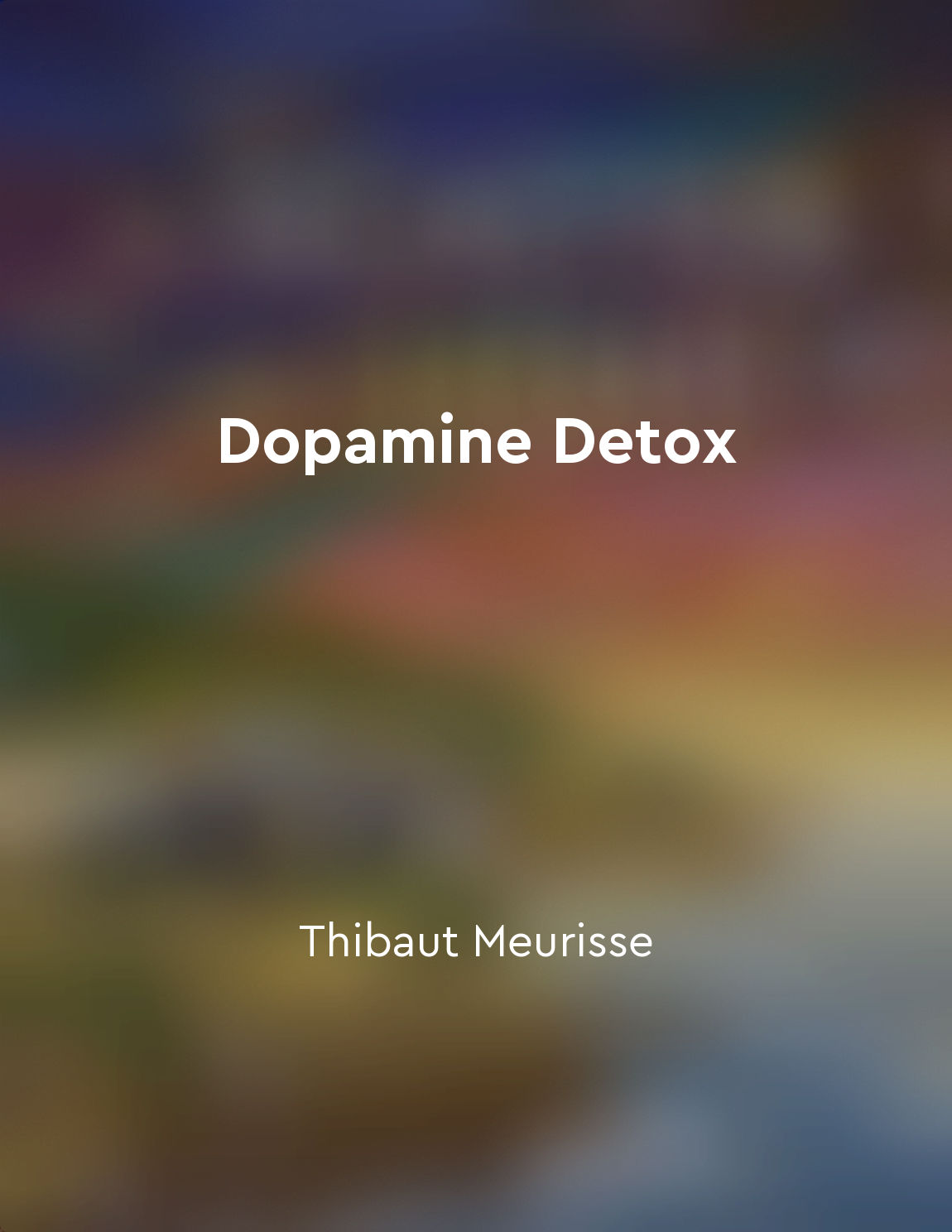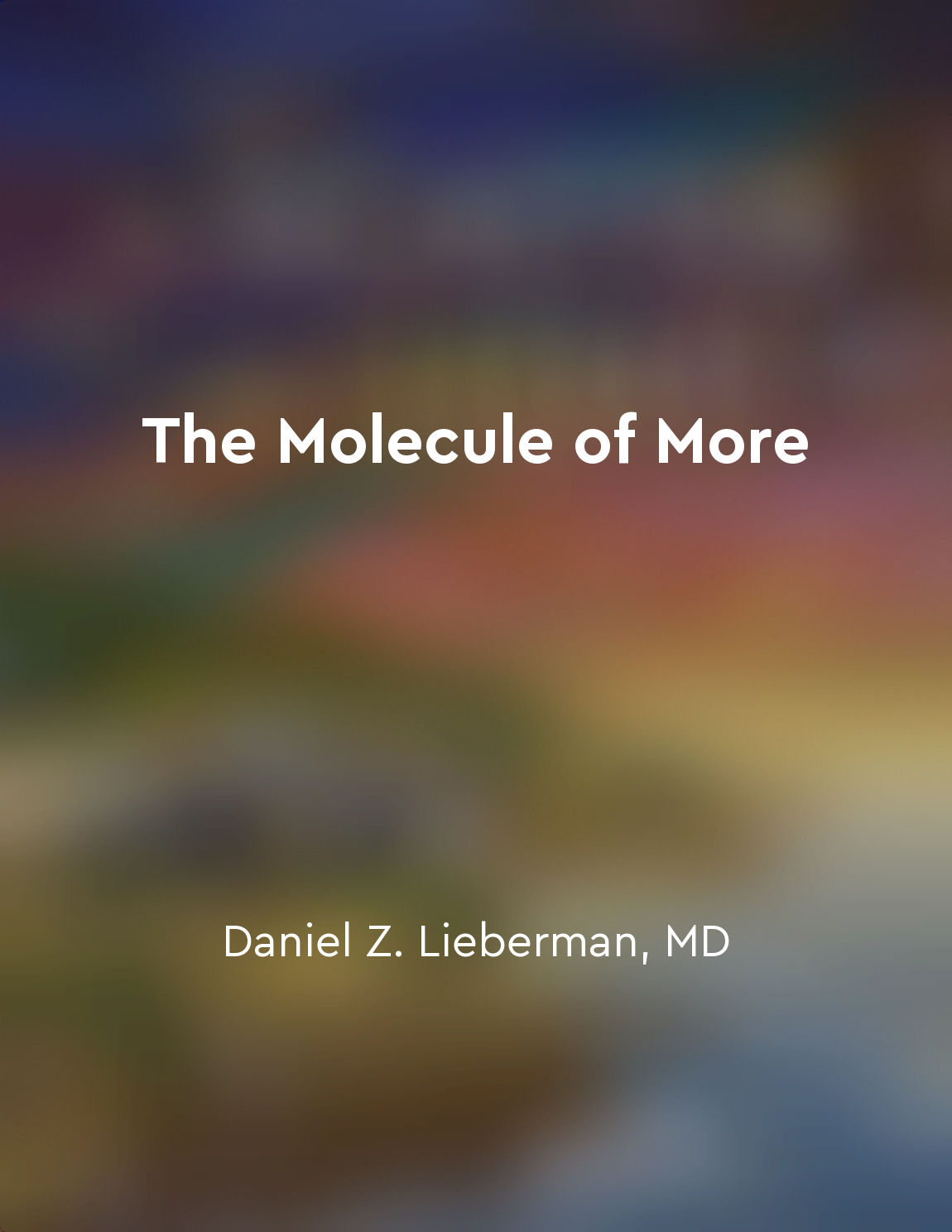Dopamine plays a role in mental health disorders from "summary" of The Molecule of More by Daniel Z. Lieberman, MD,Michael E. Long
Dopamine, that ancient neurotransmitter, is at the heart of many mental health disorders. It is the chemical that propels us forward, driving us to seek out new experiences, take risks, and pursue our goals with passion. But when dopamine levels are out of balance, it can lead to a host of problems. For some people, dopamine is in short supply, leaving them feeling unmotivated, depressed, and unable to experience pleasure. This lack of dopamine can be a key factor in conditions like depression and anhedonia, the inability to feel pleasure. These individuals may struggle to find joy in everyday activities, leading to a decreased quality of life. On the other end of the spectrum, some individuals have too much dopamine coursing through their brains. This excess dopamine can lead to impulsivity, recklessness, and a constant need for stimulation. These individuals may be more prone to addiction, as they seek out activities that provide a quick dopamine hit. Conditions like ADHD and bipolar disorder have been linked to dysregulation of dopamine levels in the brain. The delicate balance of dopamine in the brain is crucial for our mental well-being. Too much or too little can have serious consequences, impacting our mood, motivation, and ability to function in daily life. Understanding the role that dopamine plays in mental health disorders is essential for developing effective treatments and interventions to help those who are struggling. By targeting dopamine receptors and pathways, researchers hope to find new ways to restore balance and improve the lives of those affected by these disorders.Similar Posts

Reflect on your progress regularly to stay on track with your goals
Regularly reflecting on your progress is crucial if you want to stay on track with your goals. It allows you to see how far you...

Brain constantly seeks patterns
Our brains are wired to constantly search for patterns in the world around us. This innate ability helps us make sense of the v...
Brain is plastic
The brain is a remarkable organ, capable of adapting and changing throughout our lives. This concept, known as brain plasticity...
Reset your brain to remove distractions and improve focus
To get your brain to remove distractions and focus more effectively, you need to understand the concept of dopamine detox. Dopa...
Food industry creates hyperpalatable, addictive foods
The food industry has developed a strategy to create foods that are hyperpalatable and addictive. These foods are carefully eng...
Regular orgasm can make individuals detached from their partners
Regular orgasm can make individuals detached from their partners. This detachment is not a conscious decision, but rather a sub...

Social interactions influence cognition
Our brains are wired to constantly process information, make decisions, and interact with others. One key aspect of our cogniti...

Routines become automatic through practice
When we repeatedly perform a series of actions, our brains form neural pathways that make those actions easier to execute. This...

